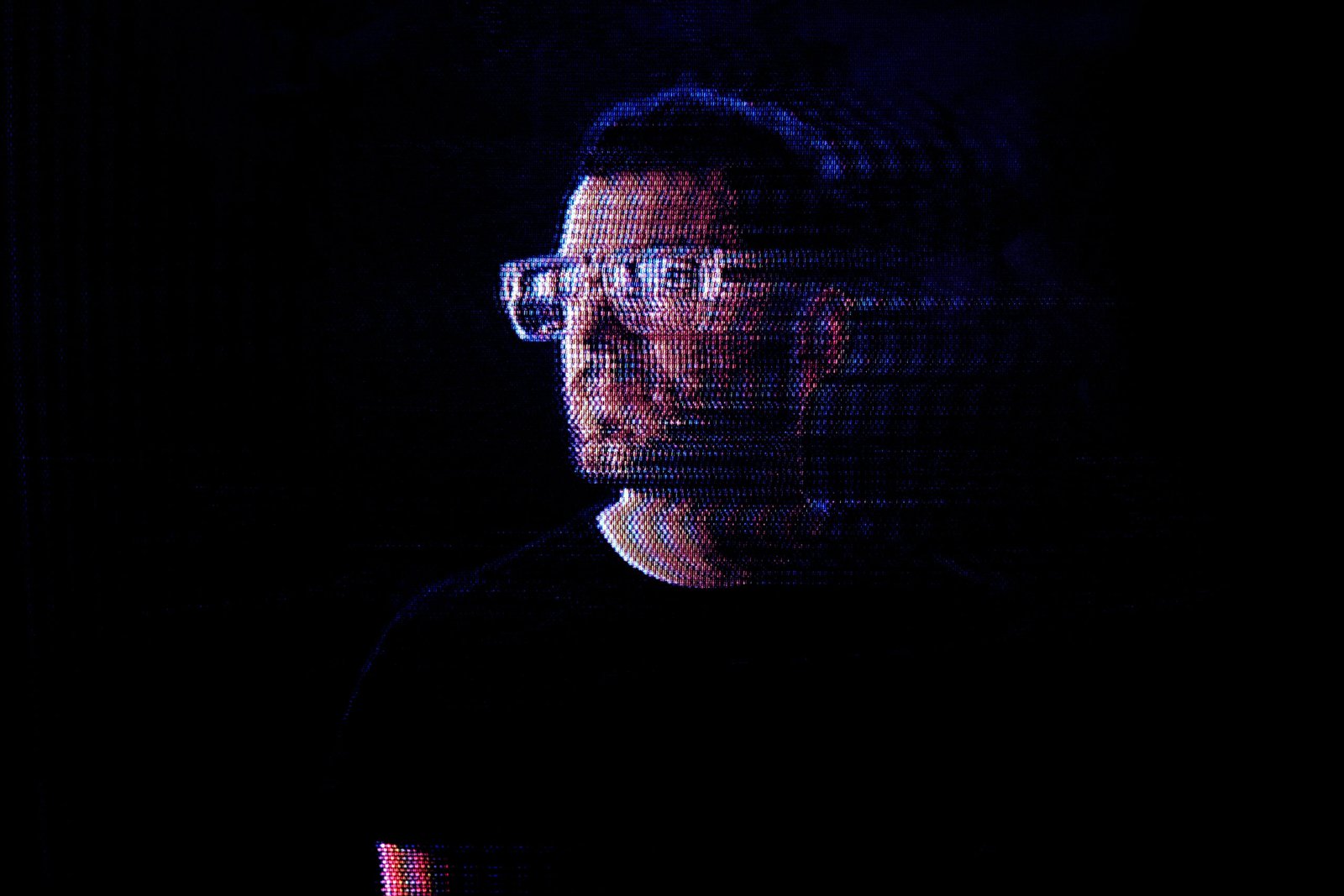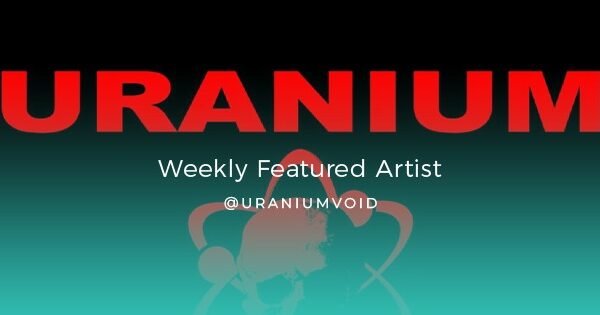It’s always interesting to see established band musicians striking out on their own, forging a path away from their main unit. While this has yielded mixed results in the past, I can’t help but admire those who do away with the comfort of a sure thing to go for something more personal. Among recent examples, Evan Chapman (Square Peg Round Hole) stands out as a shining beacon of artistic quality. Starting out as the driving force within this math/post-rock group inspired by contemporary classical music, he has branded himself as a serious composer of impactful classical and electronic pieces, which still bear a recognizable inflection of his past endeavors.
Last year saw the release of his solo début Reveries, a single off which we were fortunate enough to premiere for our audience back in September. As a specialist in percussion, it’s no wonder that Chapman deftly uses mallet instruments to propel his genre-bending music; even amongst a slew of similar artists, his distinct voice can be recognized. And yet, I wondered: what was the motivation behind his step towards solo musicianship? As it turns out, it wasn’t much of a deliberate process in the beginning:
‘Embarking on a solo project wasn’t necessarily something that I consciously set out to do in a premeditated way, but rather, it was the result of sets of circumstances that only allowed for me to create on my own: small windows of escape to tinker with a MIDI keyboard and headphones during my newborn daughter’s naps, secluded time in my home studio during COVID lockdowns, quiet moments to myself on the road while traveling for my work as a filmmaker, etc. The more I continued to feel the need to express myself creatively during these times of solitude, the more I began to realize that it was taking shape as a full-length solo album and might actually be worthwhile to release as such.‘
Throughout this process of exploration and recording, Chapman naturally found out how different the approaches tend to be between going solo and working with a band. As he himself puts it,
‘It’s hard work to pull everything off all by yourself! I am used to creating music on my own and ‘in the box’ using heavy overdubbing, looping, & processing, which is often how Square Peg Round Hole songs begin anyway, so that part of the process felt similar – but I really started to feel the weight once it came to the actual promotional cycle of the album: coordinating releases, photos, videos, booking shows… it was quite a lot to keep track of without being able to divide & conquer amongst fellow bandmates.‘
Everything Is Noise: You’ve shared some of the musical influences behind your new music, but what are/were some non-musical sources of inspiration for you?
Evan Chapman: The main one that comes to mind is film. I am a film director in my ‘day job’, and am always very inspired by movies, shows, and music videos – often visual ideas are percolating at the same time as musical ones throughout the compositional process. I also love distance running, and tend to have bursts of creative inspiration when I am out on a run.
EIN: In your EPK for the premiere of “Bodies”, you mentioned that Reveries was partly inspired by the birth of your daughter and the sentiments that arose from your new family situation. In how far can we find those emotions and impressions within this body of work?
EC: I lost my mother when I was 9 years old, which was an experience and trauma that has shaped my life, art, and work ever since. My daughter being born in 2022 was a very profound event that served as somewhat of a personal turning point – a transition from being a child who had lost a parent to being the parent myself. It was a particularly emotional time that left me lots to work through, and writing this music (especially by myself) played a huge role in sifting through my internal experience and confronting my new identity. There is an introspection and heaviness within a lot of this music, which I can now say with some hindsight is in direct conversation with everything that was going on in my life at the time.
Within the confines of his newly established direction, Chapman sought out a certain modicum of collaboration, which has led to the inclusion of guitarist JIJI and bassist Joshua Stamper into the creative team behind Reveries. The former connection, says Chapman, arose from the simple circumstance that ‘I have always loved the pairing of classical percussion & electric guitar, and a lot of my favorite contemporary-classical chamber pieces incorporate electric guitar amongst an ensemble of otherwise acoustic instruments.‘ Coming from a background of rock music, he found it natural to include the guitar in the predominantly contemporary classical sound of Reveries.
So why JIJI? Easy – because of the personal backstory: ‘JIJI has been a friend of mine for many years, and we’ve collaborated in a number of different contexts – I’ve written concert music for her to perform, and I’ve made music videos for her with my production company – so this felt like a perfect opportunity to add yet another collaboration to the growing list.‘ Stamper, then, was chosen for his pedigree, coming from a position of great influence in the Philadelphia experimental jazz/classical scene. As someone who Chapman admits to harboring a deep admiration for, Stamper was brought on to handle the upright bass, ‘which was massively helpful with breathing some human & organic life into tracks which were very heavily synthesized.‘
Aside from the human contributors, there were a set of specific instruments that were vital to the creation of Reveries. When asked about the piece of gear he used the most during the writing and recording of his solo début, Chapman divulged the following information:
‘The boring (but correct) answer would be my MIDI keyboard, but there were a couple extra special instruments that made lots of appearances on this album – namely my old Estey children’s pump organ, now precariously held together by ratchet straps, and the roughly century-old upright piano that lives in my living room, which my daughter has really taken a liking to playing (especially the highest high notes and the lowest low ones).‘
EIN: Among the new tracks you recorded for Reveries, which one are you the most proud of, and which one was the most fun to record?
EC: I am particularly proud of “Fractions” because it was the first of this batch that I completed, and therefore gave me the confidence to continue pushing on to the rest of the songs. I am proud of it because I am proud of myself for seeing its potential – something I don’t always do as someone who often struggles with feelings of inferiority. As for the most fun, that would probably be “Mirrors”… I really let that one become what it wanted to be, and tried to not put any guardrails in place throughout the creation. As a result, there are all sorts of wacky layers and textures that still entertain me with each listen.
EIN: Were there any major points of frustration or disappointment while working on this album?
EC: Because the album happened so organically, there wasn’t really enough external pressure to feel things like frustration or disappointment. I was just making the music that I wanted to be making when I felt I needed to make it. Had I been making sacrifices in the name of deadlines or external forces, I may have had a more fraught experience, but I very much made this music on my own terms and at my own pace.
There’s a clear sense of direction in the music Chapman produces on his own, so it’s not a big surprise to find out that he has a good outlook on what his future activities might look like. Apparently, the experience of total creative freedom did not put him off the idea of returning back into the folds of a more ‘traditional’ band layout: ‘I love playing in bands and will definitely continue to do so, but I also now feel like I am armed with some more confidence in my own voice as a solo artist, so I anticipate a healthy mix of the two moving forward.‘ In addition to that, we might see more of him as a composer for other artists as well, with him stating that ‘that is something I have done for a while now and would love to keep doing whenever possible. I have a couple commissions that I am working on at the moment, and am always looking for opportunities to write for other performers.‘
Furthermore, Chapman is currently commissioning other composers for a set of pieces centered around concert drums and electronics, which he plans to bring into the world both on stage and as a recording at some point in the near future. I’m always amazed at go-getter-type people, and how they have such a strong grasp on their future plans, and it sounds like Chapman belongs in that category as well. Whatever project he’ll put his mind to will surely turn out absolutely brilliant, so I’m looking forward to hearing what comes next!
In my eyes, the last word always belongs to the artist themself, so I’ll defer you to Evan Chapman‘s social media (Facebook | Instagram | Twitter) and official website in case you want to keep an eye on his trajectory going forward. And now, I yield the stage for Chapman, who has a few words to share directly with you, the EIN readership:
‘I am grateful to Everything Is Noise for the support in this release and interest in the process behind it. If a reader comes across this interview and has not yet listened to the album, I might suggest listening to it from start to finish; while our current day & age is always pushing us towards singles and shorter and shorter attention spans, I am personally a fan of the ‘album experience’ and ordered/paced the tracks accordingly. You just might experience a sum that is greater than the individual parts… or at least that’s the hope.‘






